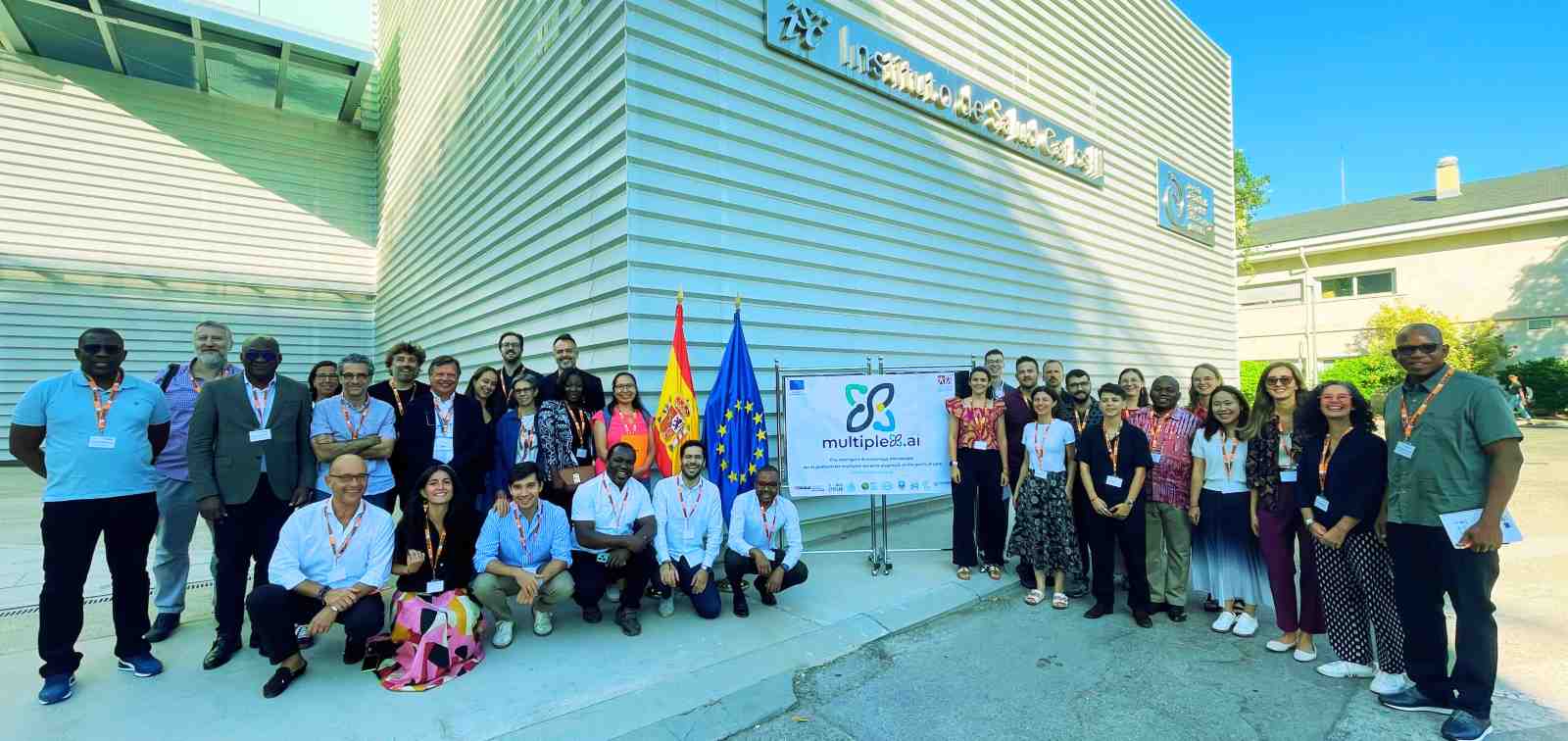The MultiplexAI Project Aims to Transform Parasitic Disease Diagnosis with AI
A consortium of nine African and European institutions has launched this initiative to develop a mobile diagnostic tool powered by AI
17.09.2025
The MultiplexAI project, funded by the European Union’s EDCTP3 program, will transform conventional microscopes into smart tools capable of delivering expert-level diagnoses directly at the point of primary care, opening new possibilities for faster, more accurate, and more accessible healthcare. Coordinated by ISGlobal and powered by SpotLab’s technology, a Spanish company specialising in artificial intelligence for medical diagnostics and biopharmaceutical research, it brings together partners from Nigeria, Mozambique, Côte d’Ivoire, Ethiopia, Italy, and Spain.
AI to address global health challenges
Parasitic diseases such as malaria and several neglected tropical diseases continue to affect more than one billion people, particularly in low- and middle-income countries. Diagnosis relies heavily on manual microscopy, a labour-intensive method that depends on the availability and expertise of the analyst, making it prone to delays, variability, and misdiagnosis.
MultiplexAI aims to clinically validate a system capable of providing fast, accurate, and affordable diagnoses at the point of care. It works like an “Instagram filter”: analysing microscopy images of blood samples to detect disease patterns. An advanced computer vision foundation AI model running on smartphones connected to standard microscopes through 3D-printed adapters delivers expert-level results in real time.
“This project aims to unleash the AI revolution to transform millions of microscopes around the world into a network of intelligent devices that can provide reliable diagnostics and medical knowledge for everyone, everywhere,” said Miguel Luengo-Oroz, CEO of SpotLab, “We are taking on a bold technical AI challenge to help solve a problem that matters”.
The system, designed to operate offline and connect with a telemedicine platform whenever Internet access is available, will be validated in multicenter clinical studies across Africa and Europe.
“Too often, the places that need reliable diagnostics the most are the least equipped to access them,” pointed out Gloria Dada Chechet, Associate Professor at ABU in Nigeria and Scientific Project Lead for MultiplexAI. “MultiplexAI meets that challenge by bringing expert analysis directly to the point of care.”
Towards More Accessible Healthcare
Beyond technical performance, the project will ensure usability, acceptability, and cost-effectiveness of the MultiplexAI system. Health impact and economics modelling will estimate its potential to reduce misdiagnosis, improve patient outcomes, and strengthen healthcare systems.
“Over one billion people, many of them children, remain at risk of contracting parasitic diseases,” said Quique Bassat, General Director of ISGlobal. “MultiplexAI shows how deep-tech innovation, built with global partners, can democratise expert-level diagnostics and help transform health systems worldwide.”
The consortium is committed to responsible and equitable AI, following WHO’s ethical principles, respecting privacy, and aligning with the medical device regulations and the EU AI Act to prioritise safety, transparency, and sustainability. A Global Access Plan will guide responsible deployment and ensure equitable access in underserved regions.



